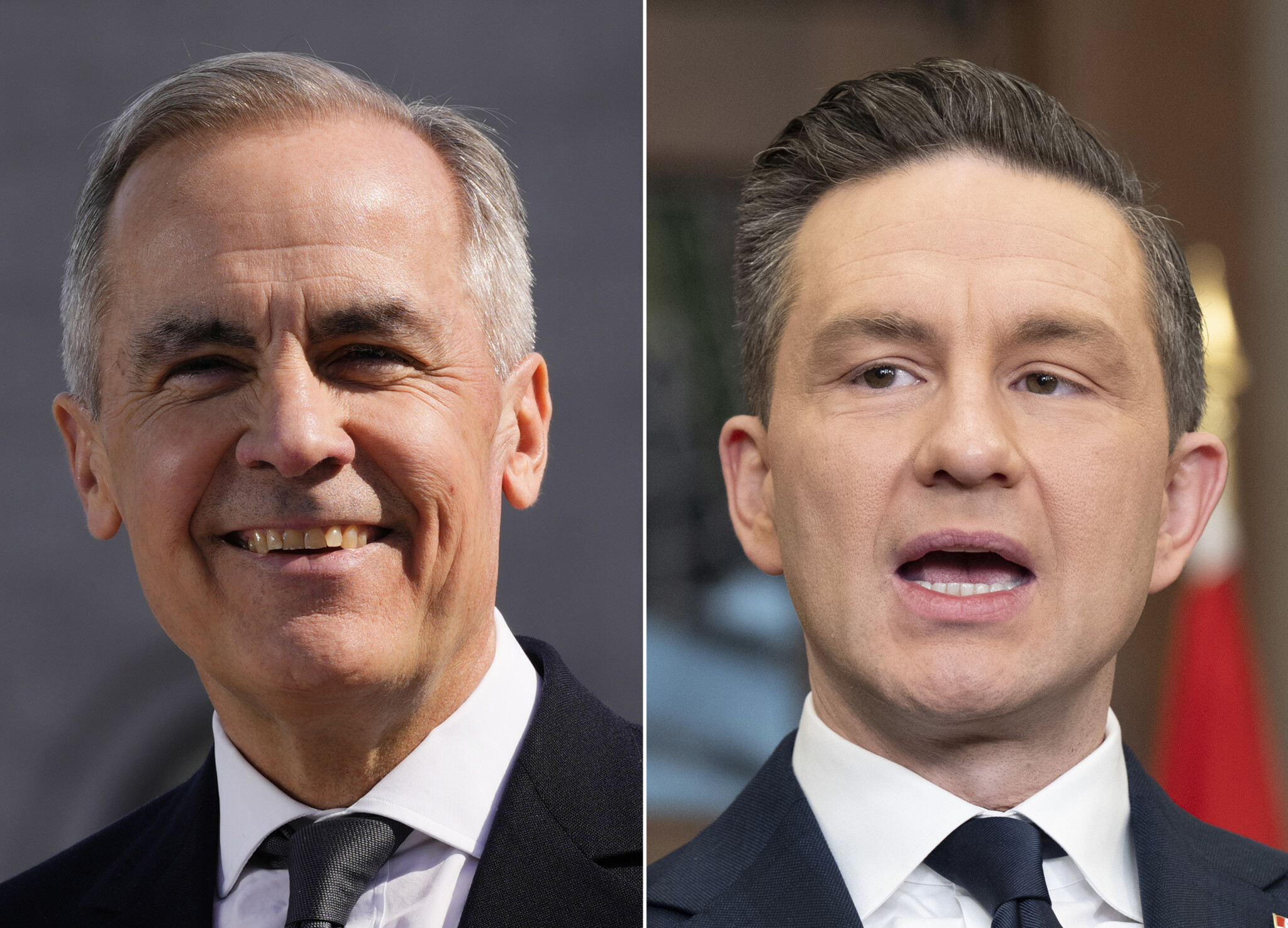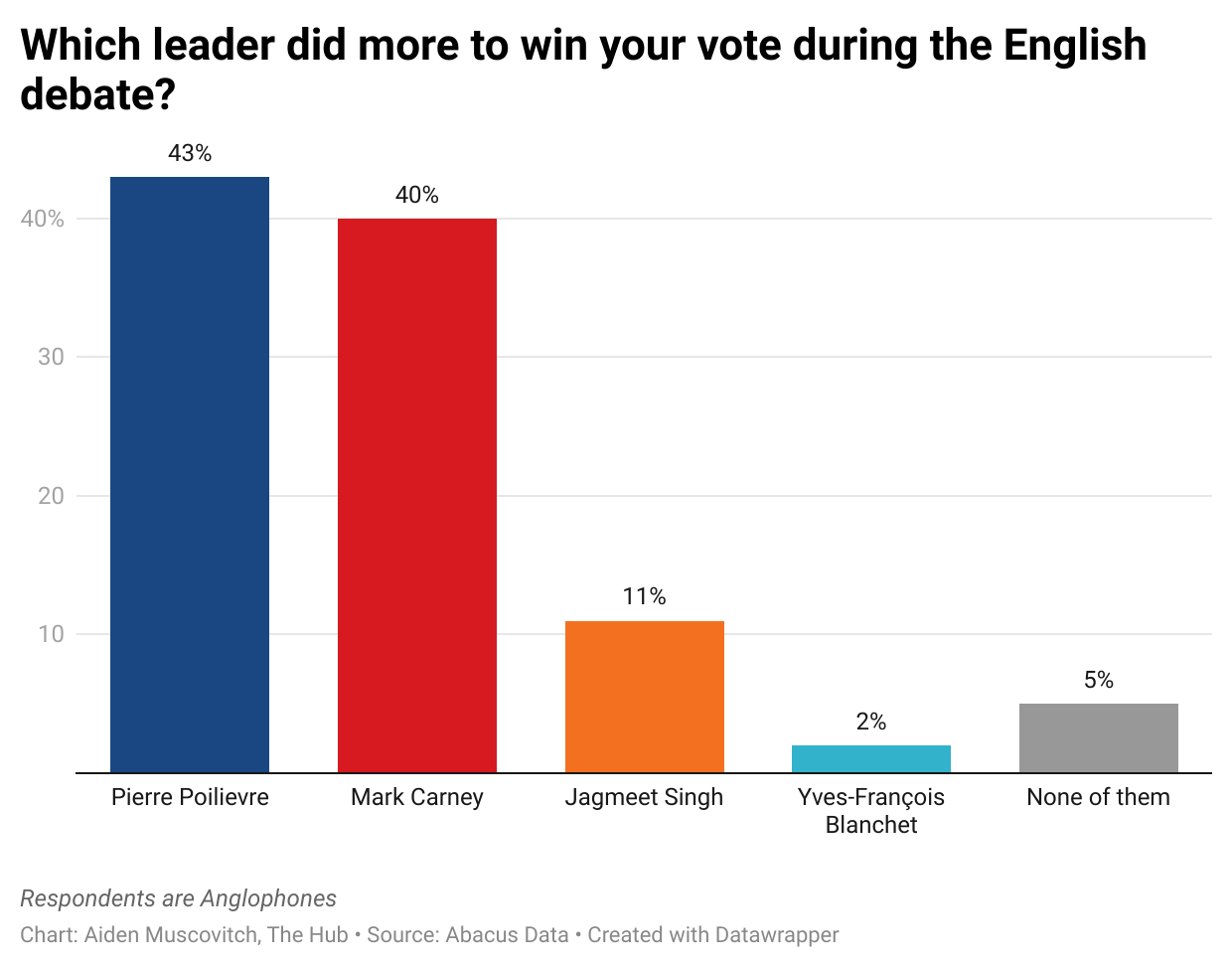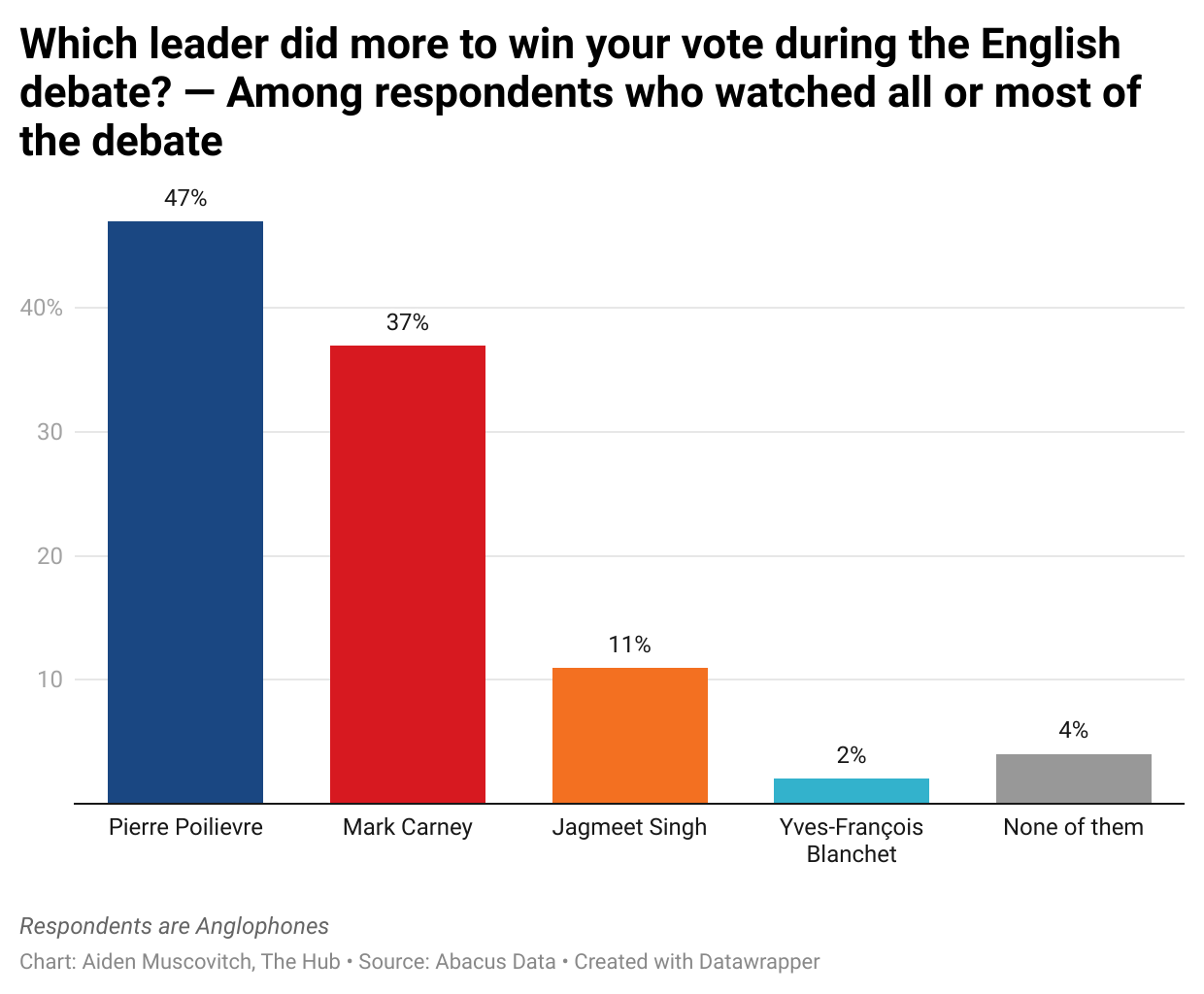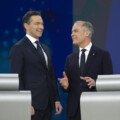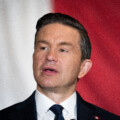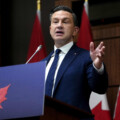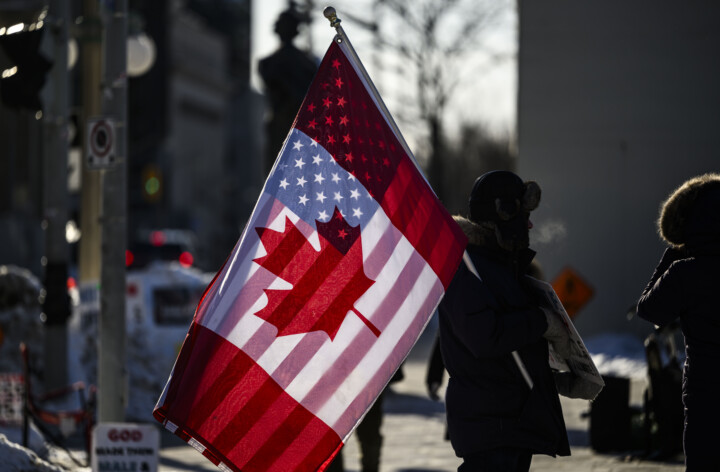This is The Week in Polling, your Saturday dose of interesting numbers from top pollsters in Canada and around the world, curated by The Hub. Here’s what we’re looking at this week.
No decisive winner of English-language debate, with slight advantage to Poilievre
On Thursday night, Conservative leader Pierre Poilievre, Liberal leader Mark Carney, New Democrat leader Jagmeet Singh, and Bloc Québécois leader Yves-François Blanchet battled it out in the English-language debate live from Montreal.
Abacus Data conducted a snap poll immediately following the war of words, asking respondents which leader did more to win their vote. The numbers collected suggest no clear winner, with Poilievre only edging out Carney by 3 percent, with a margin of error of about 2.9 percentage points.
However, when looking just at the opinions of people who watched the debate in its entirety (23 percent of Canadians), the data suggests Poilievre enjoyed a dominant victory.
Just under 50 percent of those who watched the debate in full think Poilievre did the most to win their vote, while only 37 percent of respondents say the same about Carney.
John Ibbitson wrote in The Hub that while Poilievre did not decisively win the debate, Carney most likely lost it.
“Poilievre was most successful when he hung Trudeau’s legacy around Carney’s neck,” he explained. He added that the Conservative leader, “accused [Carney] of being almost a figurehead, fronting a Liberal Party whose policies had become deeply unpopular.”
However, Ibbitson did write that Carney got a few decent shots in, quoting when the Liberal leader told Poilievre, “You spent years running against Justin Trudeau and the carbon tax. They’re both gone.”
Sean Speer wrote in The Hub that Thursday night’s debate showed Poilievre attempting to steer the campaign towards change.
“He’s prepared to win or lose making the case for change. He must have said the word a dozen times or more,” described The Hub‘s co-founder. “A political strategy needs to ultimately be something that they [politicians] believe in. It has to animate them. It must align the head and the heart. Poilievre’s debate performance is a sign that the Conservatives have settled on such a political strategy,” Speer writes.
In terms of national viewership, the Abacus poll found that 50 percent of Anglophone Canadians watched all or some of the debate. Fifty-two percent of voters between the ages of 18 and 29 watched all or some of the debate, the largest age demographic to have tuned in. The least likely age demographic to have seen the debate was the 45-59 age group, at 48 percent.
Ontario, a key battleground province, was the most tuned-in, with 54 percent of voters watching the debate in its entirety, or parts of it.
Moreover, just under 60 percent of potential Liberal voters watched all or some of the debate, compared to 54 percent of Conservative voters and only 37 percent of NDP voters.
The survey included 600 English-speaking Canadian adults, representative of 1,200 voters.
